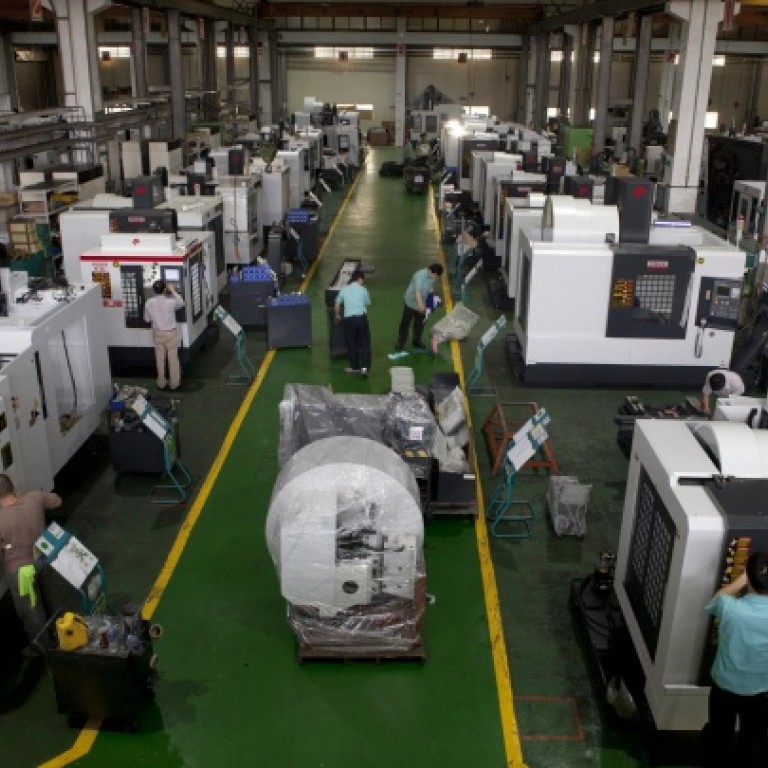
Global manufacturing data raises growth fears
Figures show contraction in May output in China, the US and Europe, indicating world economy still weak and in need of central bank support
Manufacturers in China, the United States and Europe struggled last month as demand fell, suggesting an ailing world economy that still needs a steady diet of central bank support.
Output at US factories declined in May for the first time in six months, the Institute for Supply Management reported, while China's massive manufacturing sector shrank for the first time in seven months, adding to concerns that the world's two largest economies were losing momentum in the second quarter.
Euro-zone manufacturing contracted for the 22nd consecutive month, although the depth of the downturn eased for the first time in four months.
The International Monetary Fund cut in half its forecast for German growth this year, but said Europe's biggest economy would experience a recovery in the second half of the year.
"Amid still elevated euro area uncertainty, we now project [gross domestic product] in Germany to expand at 0.3 per cent," compared with a previous forecast of 0.6 per cent, the IMF said. Growth "is expected to be weak".
In the US, the data bolstered the view that the economy was undergoing yet another spring swoon after expanding at a 2.4 per cent rate in the first three months of the year.
That makes it unlikely the Federal Reserve would soon start to scale back the US$85 billion in bonds it is buying each month. Fed chairman Ben Bernanke last month said those purchases could be cut at one of the central bank's "next few meetings".
A report from financial data firm Markit showed the US factory sector continued to expand last month but at a sluggish pace, suggesting it would likely be a drag on second-quarter growth.
The HSBC China PMI, meanwhile, showed new orders and new export orders fell last month, highlighting weakness in both domestic and overseas demand. The index slipped to 49.2, its worst performance since October last year.
"The global economy remains weak … There's nothing in the system at the moment, certainly in China, that suggests there is a big pickup in store just around the corner," said Victoria Clarke at Investec.
The HSBC PMI followed a similar government survey released on Saturday that showed a slight rise but also pointed to falling orders from key markets.
"We think China's economic growth will probably continue to slide," said Zhiwei Zhang, the chief China economist at Nomura in Hong Kong.
New export orders also fell in Taiwan, a key producer in the global technology supply chain, while in South Korea, home to big brand names such as Samsung and Hyundai, new export orders growth eased to the weakest pace since January.
"A number of respondents blamed the reduction in demand on a general slowdown in global activity," HSBC said.
Markit's euro-zone PMI rose to 48.3 from April's 46.7. That still reflected contraction but was the highest reading since February last year.
Surveys from Germany and France showed activity contracted last month but at a slower pace than in April. The story was similar in Spain and Italy.
In contrast, British manufacturing expanded at its fastest pace in more than a year, a possible sign of more broad-based recovery in the economy.
Additional reporting by Agence France-Presse

